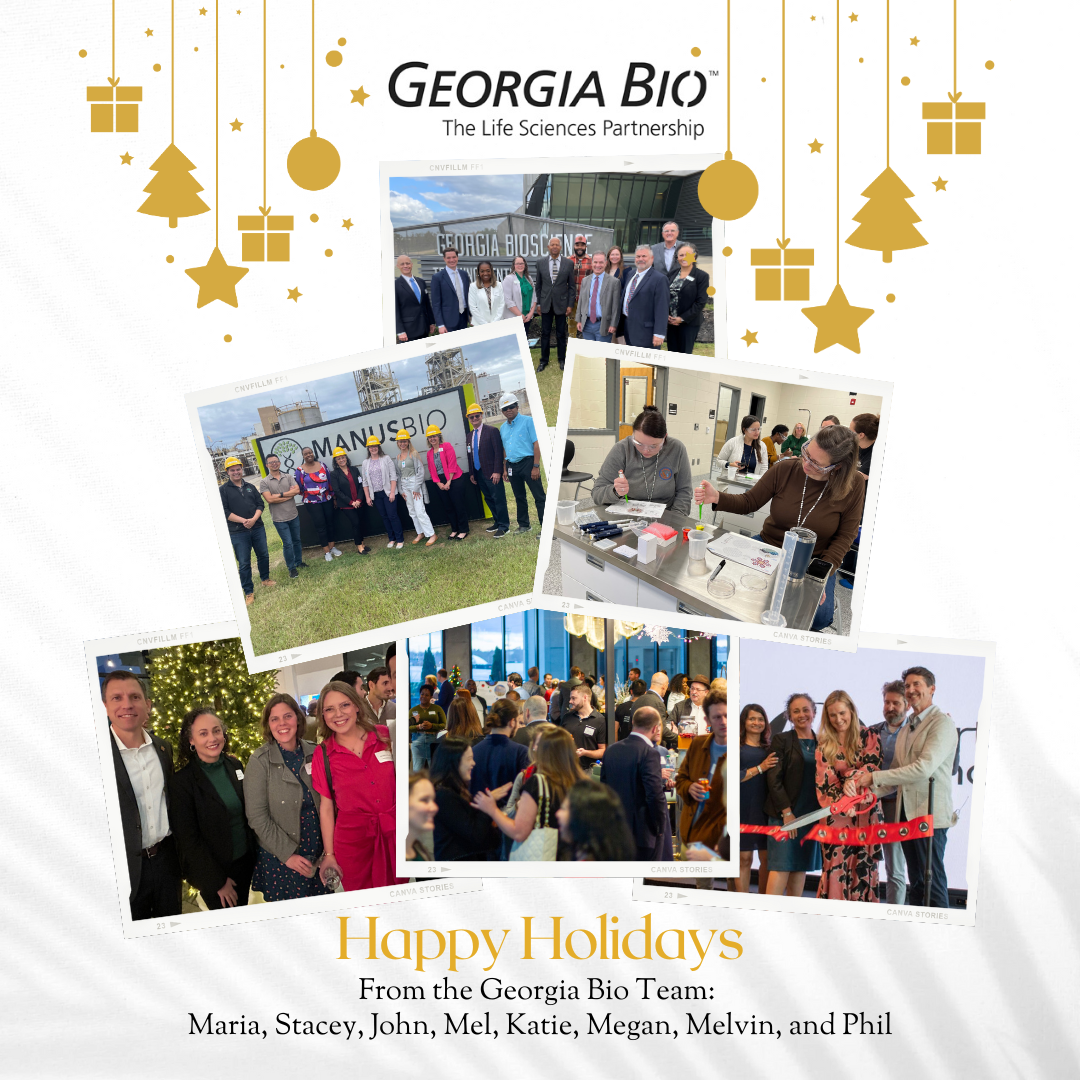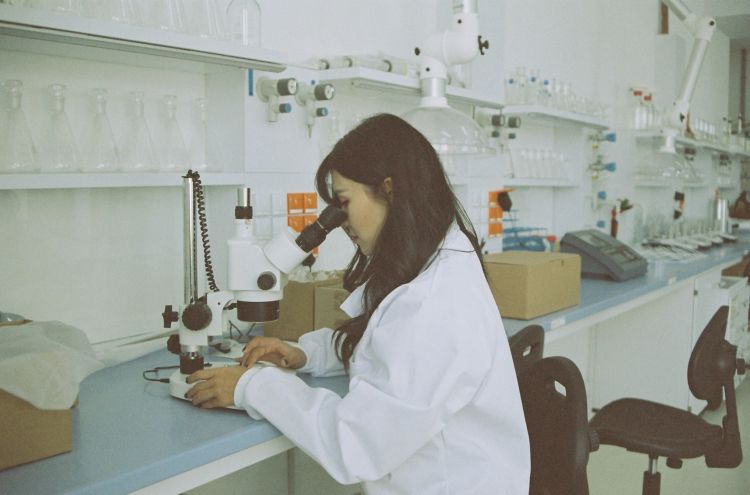Reflecting on a Remarkable 2024; See You in 2025!

It’s our favorite time of the year, which means our team is out of the office from December 24 through January 3, taking a well-deserved break with family and friends.
As 2024 draws to a close, I want to express my heartfelt gratitude to the Georgia Bio community for an extraordinary year. Together, we have continued to advance our shared mission of fostering innovation, collaboration, and growth within the life sciences sector. Last week, we also hosted the final meeting of the year with the Georgia Bio board, sharing our vision for the association’s future growth. A special thank you to our board chair, Steve Damon, for your leadership and vision during a transitional year where we re-emerged as a 501c6 non-profit allowing us to further our policy and advocacy work which our previous designation did not allow. This significant change prepares us to have a stronger voice as we get ready to enter the 2025 legislative session.
Our rapidly growing membership is a testament to the energy, diversity, and strength of our community. Your contributions—whether through new ideas, partnerships, or engagement—continue to propel our industry forward and solidify Georgia as a leader in life sciences innovation. Looking ahead to 2025, we are excited to build on the momentum in 2025. Our focus will be to create high-value programs, strengthen collaborations, advocate for the industry and our members at the state and federal level, and open doors to new opportunities that drive progress and improve lives through science. Together, we will tackle challenges, celebrate achievements, and continue shaping the future of the life sciences.
On behalf of Georgia Bio, I wish you a joyous holiday season filled with peace, happiness, and inspiration. I look forward to welcoming members at the Georgia Bio State Affiliate Reception at JPMorgan in early January and invite you to Save the Date for a Georgia Bio Member Appreciation reception the evening of Feb. 11th.
Thank you for your unwavering support and commitment to our mission. Cheers to a bright and impactful 2025!
Maria
------------------------------------------
While we're out, we invite you to share in one to two words, what you are most optimistic about for 2025. Maybe your team is growing, you are starting a clinical trial or expanding your portfolio, excited about a transformative trend in the industry, or maybe you’re a optimistic about changes to the capital markets or regulatory landscape.






